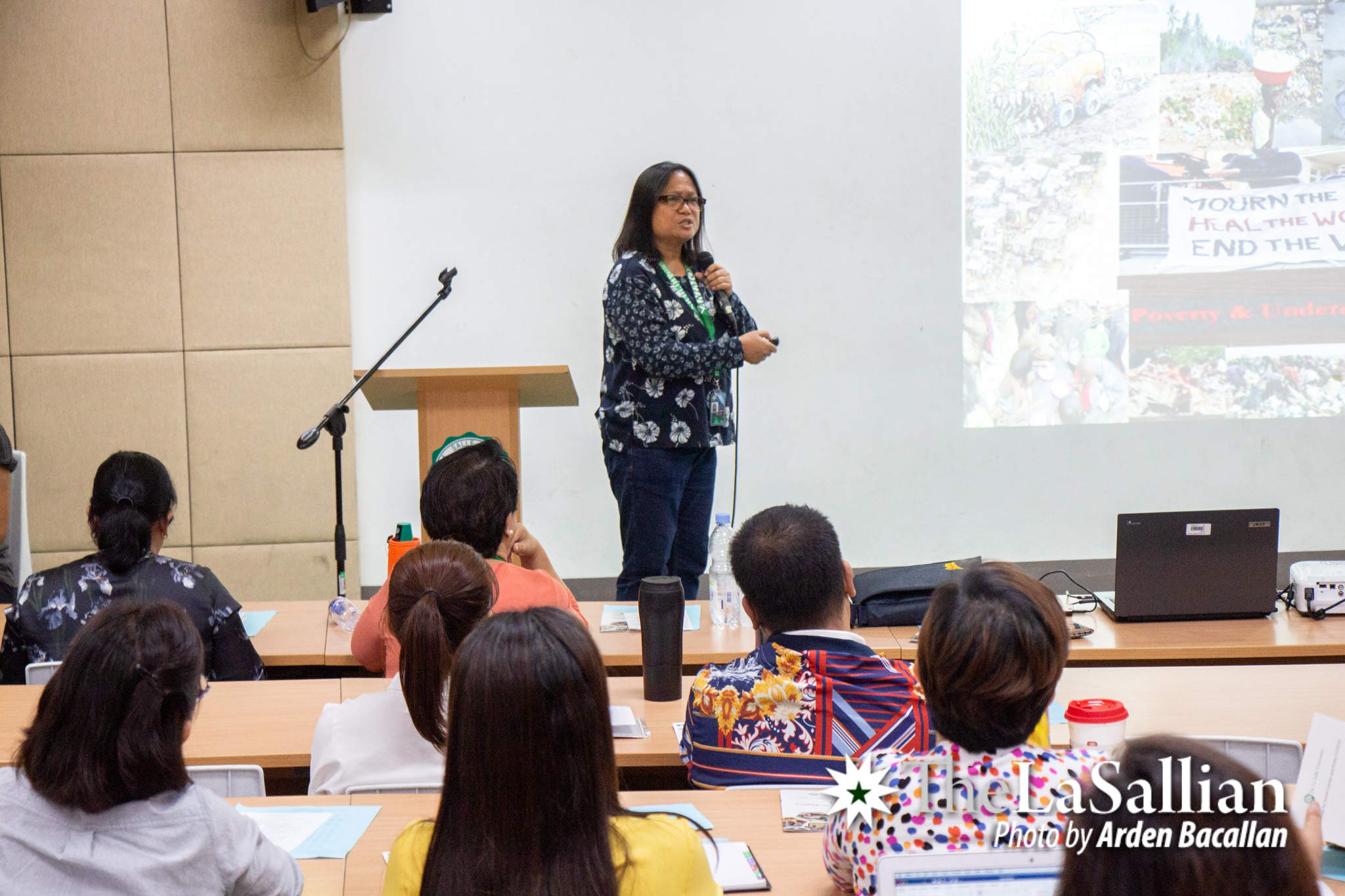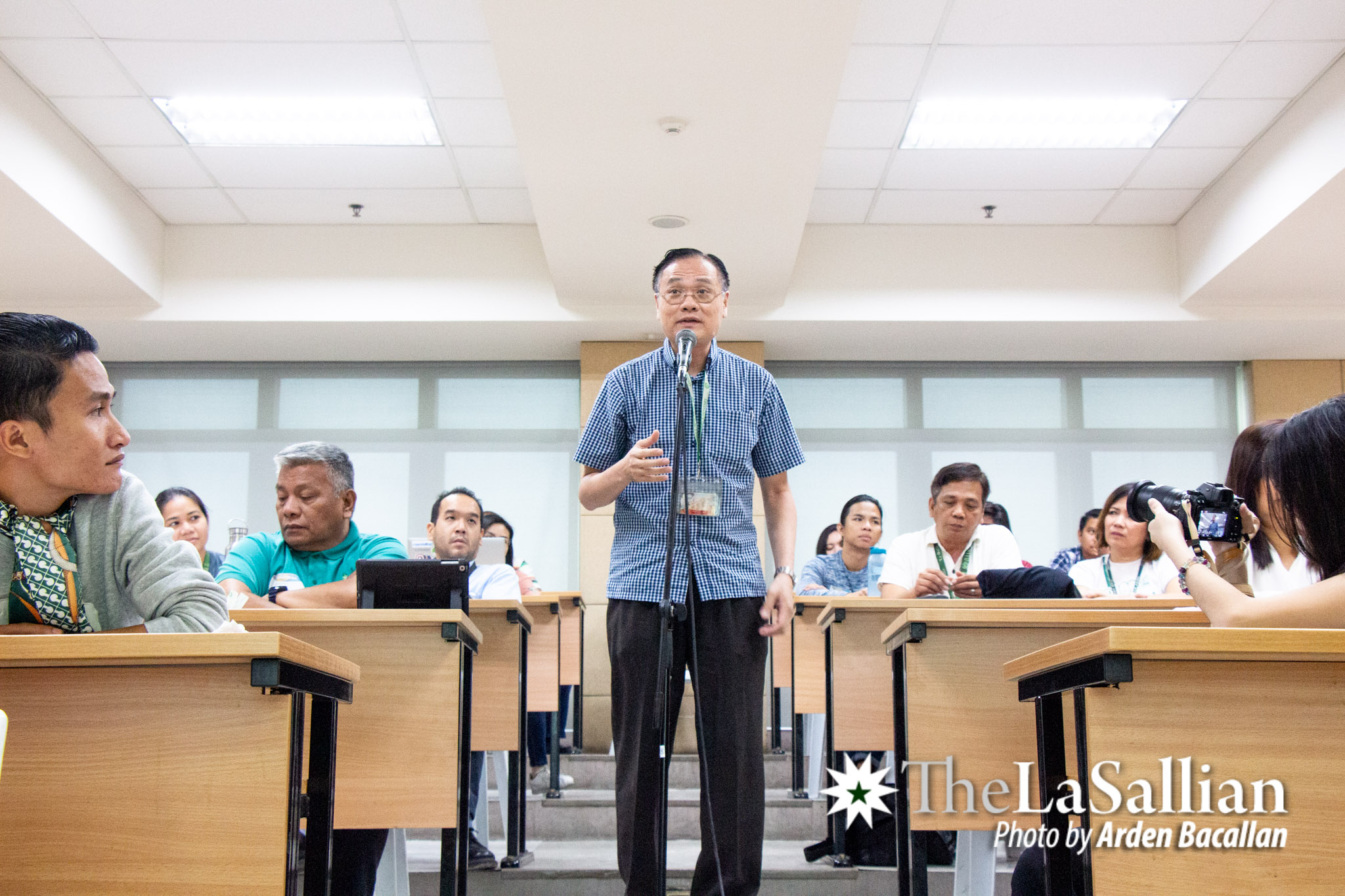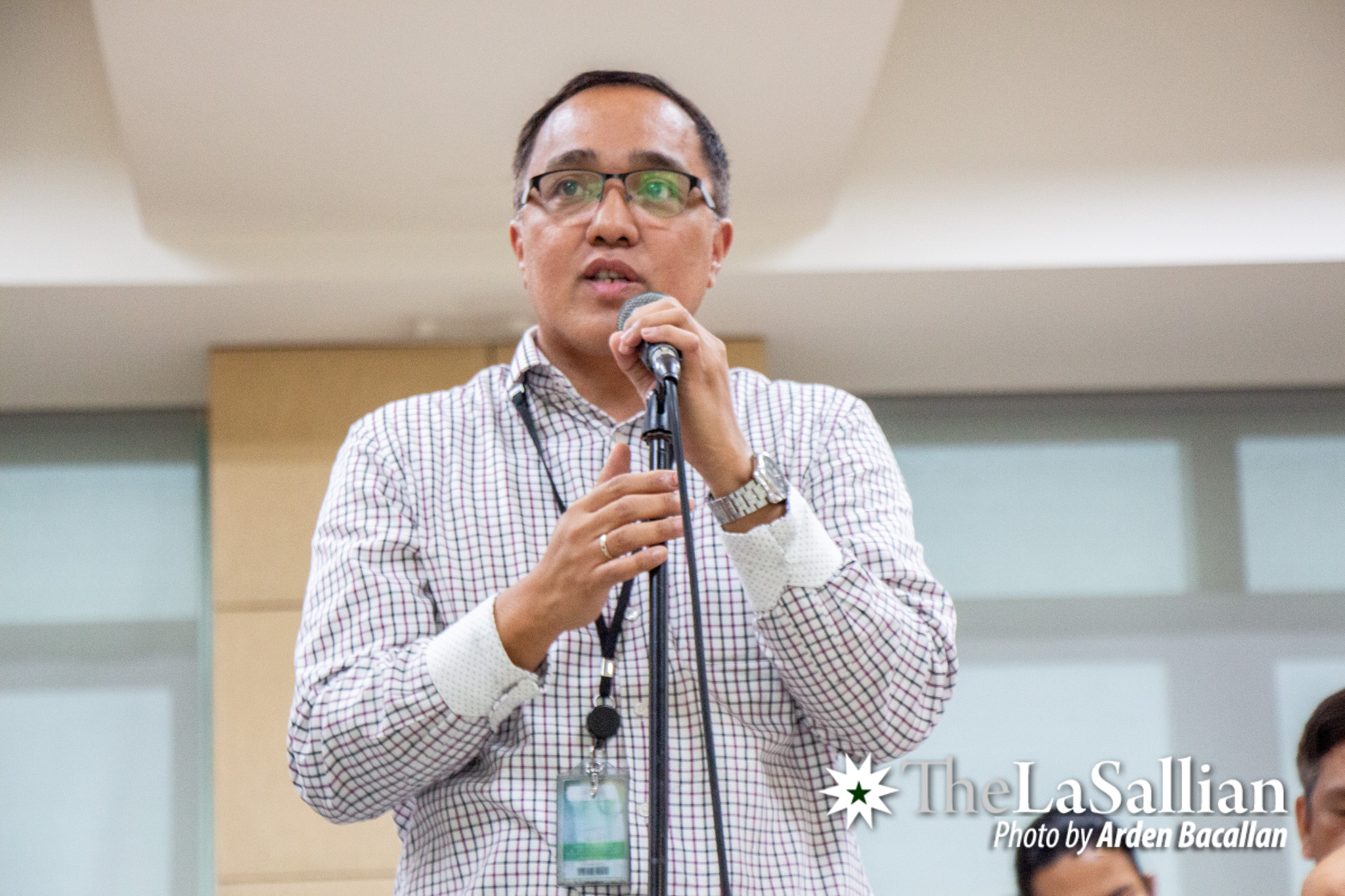A symposium titled Global Service-Learning: Role of HEIs in Cultivating Global Citizenship was organized by the Center for Social Concern and Action (COSCA) last May 27 at A703 of the Br. Andrew Gonzalez Hall. The event emphasized the need for higher education institutions to strengthen the service-learning component of their academic programs that can better prepare students for challenges in the global environment.
‘Down the hill’
Keynote speaker Maria Lourdes Melegrito emphasized the importance of breaking the image of universities as “ivory towers” that are detached from society. She proposed that the University should go “down the hill” to engage with communities, which she believed was the key to fulfilling this responsibility that lies in Global Service-learning (GSL). “Go to the people, listen to the people, work with the people, engage with the people,” said Melegrito.
She proceeded to elaborate on what exactly GSL entails, and discussed its foundations in Pedagogy, Process, and Philosophy. Essentially, GSL, she explained, is “the education of young people and the upliftment of socially disadvantaged communities [through the] integration of academic learning with experiential learning in the curriculum under the principles of Humanism.”

Challenges in implementation
Throughout the symposium, it was acknowledged by the speakers that the University’s implementation of GSL is still in the experimental stage. As such, several concerns were raised.
Among them was funding. Dean of Student Affairs Nelca Villarin clarified that recent talks with the Multi-Sectoral Consultative Committee on Tuition Fee have shown that student representatives were willing to pay a service-learning fee of P650 to enroll in courses related to GSL.
Another major concern is continuity and sustainability. A faculty member from De La Salle Lipa asked how to better help communities that may grow tired of repetitive projects. Deborah Salem, an assistant professor from the psychology department of Silliman University, answered this by revealing their school’s efforts to overcome this problem. According to her, they ensure consistency in the community service projects proposed by students by allowing communities to build up from previously accomplished projects.

Backed by experience, researching
The second talk was about the best practices of implementing GSL. Salem provided insight to the several years of experience Silliman University has had with implementing SL programs, stretching as far back as 2000. She provided guidance with the process of cost-calculating and reaching an agreement with the relevant groups and communities to smoothen the process of service-learning.
Her advice also resonated with what was covered in the previous talk, namely the need to find a balance between the needs of the students and of the community throughout the course. She also stressed the need for the former to internalize the values learned throughout the course.
The mutual benefits between the community and the students were focused on by Atty. Jocelyn Cruz, chair of the Commercial Law Department. She cited a study conducted in 2001 which, according to her, concluded, “Academically-based knowledge alone cannot prepare students to confront 21st century issues.” She also mentioned a separate study whose findings pointed that students in a traditional class environment were disengaged 40 percent of the time, retaining less than 20 percent of what is discussed.

Service-learning then, Cruz argued, could address the issues found in the aforementioned studies. Having service-learning resolves “the need for teachers to relinquish their role as experts and recognize the contributions of the student and the community in the learning process,” she stressed.
College of Liberal Arts Dean Dr. Jazmin Llana closed the event by stating how GSL is a vital step forward for the University to keep up with the “Fourth Industrial Revolution” and to “future-proof” the curriculum for the succeeding generations.
